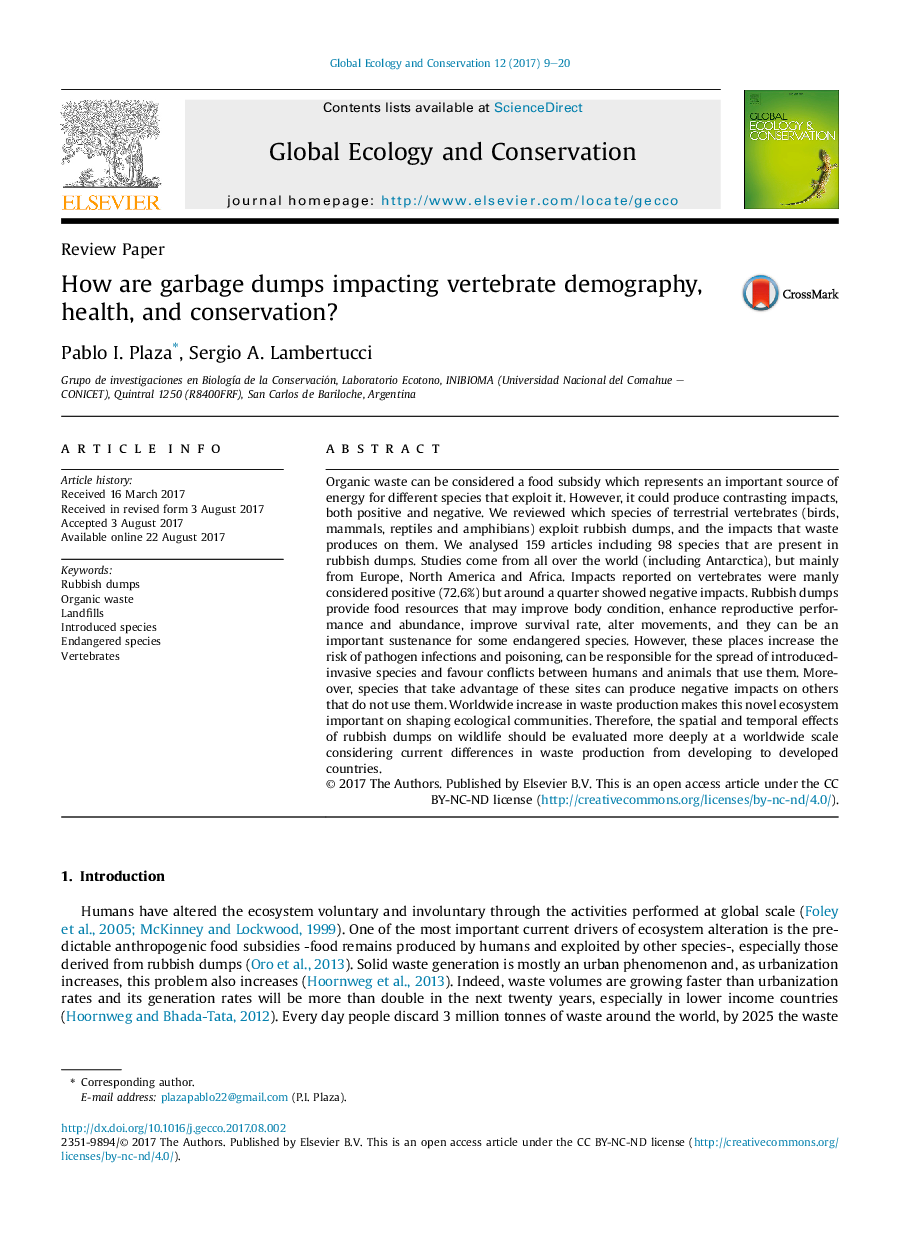| کد مقاله | کد نشریه | سال انتشار | مقاله انگلیسی | نسخه تمام متن |
|---|---|---|---|---|
| 5742354 | 1617655 | 2017 | 12 صفحه PDF | دانلود رایگان |
- Dumps produce contrasting Impacts on individuals and populations using them.
- Dumps provide abundant and permanent food, but also increment the risk of pathogens infection and toxics exposure.
- Indirectly, dumps may produce negative impacts on species that do not take advantage of these sites.
- Dumps may provide food to invasive species and favour the invasion process.
- Some threatened species could depend on food provided by dumps.
Organic waste can be considered a food subsidy which represents an important source of energy for different species that exploit it. However, it could produce contrasting impacts, both positive and negative. We reviewed which species of terrestrial vertebrates (birds, mammals, reptiles and amphibians) exploit rubbish dumps, and the impacts that waste produces on them. We analysed 159 articles including 98 species that are present in rubbish dumps. Studies come from all over the world (including Antarctica), but mainly from Europe, North America and Africa. Impacts reported on vertebrates were manly considered positive (72.6%) but around a quarter showed negative impacts. Rubbish dumps provide food resources that may improve body condition, enhance reproductive performance and abundance, improve survival rate, alter movements, and they can be an important sustenance for some endangered species. However, these places increase the risk of pathogen infections and poisoning, can be responsible for the spread of introduced-invasive species and favour conflicts between humans and animals that use them. Moreover, species that take advantage of these sites can produce negative impacts on others that do not use them. Worldwide increase in waste production makes this novel ecosystem important on shaping ecological communities. Therefore, the spatial and temporal effects of rubbish dumps on wildlife should be evaluated more deeply at a worldwide scale considering current differences in waste production from developing to developed countries.
Journal: Global Ecology and Conservation - Volume 12, October 2017, Pages 9-20
